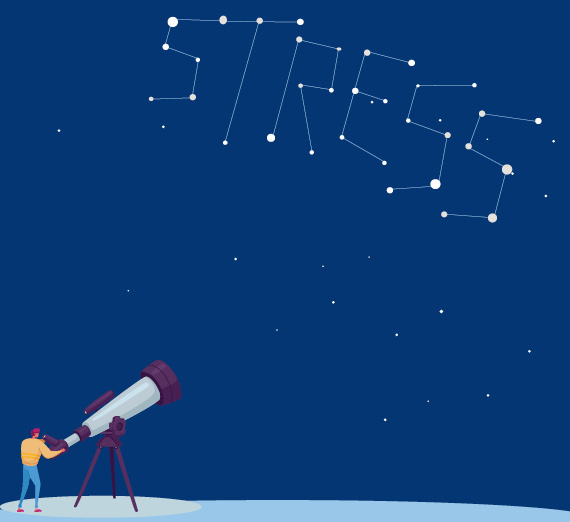A Constellation of Stressors

How are students coping? How is the University helping?
» COVID-19 contributed to increased depression and anxiety specifically related to academic performance. Its cumulative impact on mental health also yielded an increase in suicide risk. (American College Health Association)
» College counseling centers are overwhelmed by increased requests for support, and without hiring additional help, counselors themselves are facing fatigue and burnout. (Chronicle of Higher Education, Nov. 2021.)
» At the peak of activity last fall, each Gonzaga counselor was providing care to 40-50 students, and wait times could be two to three weeks for an initial counseling or follow-up appointment with the Health and Counseling Services center.
» By the start of the spring semester, additional counseling interns joined the team to provide greater access to care with significantly decreased waiting times. The center is exploring additional mental health services to help students after hours.
In fall 2021, Fernando Ortiz, Ph.D., director of Psychological Services, said his team was experiencing a peak at Gonzaga – both in terms of the numbers of students accessing services and the complex presentations of symptoms. He believes this reflects both the increased anxiety of students and their acknowledgement that they need professional guidance and support.
Historically, students sought care for diagnoses such as depression or anxiety. Now, these may be coupled with trauma, ADHD, eating disorders or other concerns. These are challenging enough, says Kristiana Holmes, DNP, director of Health and Counseling Services. “But COVID adds this extra layer. Now we have students with more complex needs.”
Jenna Parisi, who oversees the Office of Health Promotion, is quick to point out the greater impact on students of color and those who have been marginalized. “LGBTQ students, for example, already experience a high level of stress due to a decreased sense of social belonging and connection, and COVID exacerbated that,” she says. “We’re trying to improve our representation of and outreach to our subpopulations that are at the most risk.”
The good news, Ortiz says, is the positive outcomes students are experiencing when they access counseling. “They’re improving, staying engaged and thriving.”
Seeking Community Well-being
A survey last fall among undergraduate students indicated that the pandemic has influenced frustration and anger, Parisi says. “Hopefully, this will improve with in-person events.”
The well-being unit is trying to be creative in its outreach rather than waiting to help students in a crisis. They have offered activities for Mindfulness Mondays and Wellness Wednesdays, but now they’re talking with deans about the potential for a deeper connection with the academic side of university life. What if faculty offered extra credit for attending events and tying the experience to a course topic? Or allowed students a “pass” on a class meeting to participate in a wellness activity during community well-being days?
Colleagues throughout Student Affairs planned a three-day event early in December to offer students and employees a variety of activities to relieve stress. From yoga and meditation to cooking pasta, faculty and staff members across campus presented opportunities to “create a different headspace,” Parisi says. More than 450 people participated, and the effort inspired some new ideas.
Holmes says Parisi’s team’s energy on this outreach is critical.
“Fernando’s staff is trying to work with as many students as possible. But not all students will come to counseling, whereas they may come to something offered broadly,” Holmes says.
“We are continuing efforts to destigmatize help-seeking, reinforce on- and off-campus resources and promote self-care strategies,” Parisi says. “With the ongoing challenges of COVID, we’re also trying to equip all who accompany our students (faculty, staff, families) to expect and normalize stress, while proactively discussing healthy coping and monitoring for signs of crisis.”
Everyone hopes a proactive approach can help avoid the types of crises (such as peaks in student suicide) seen elsewhere.
When School's Out
In counseling, Ortiz says one of the first questions asked of students is whether they have an emotional support system of friends and family. As students return home for spring break or summer, “these are wonderful opportunities for them to reconnect and to share how they have coped psychologically and emotionally,” he says. “We’re always advocating for them to enlist allies at home and to seek follow-up care in their communities of origin.”
Unfortunately, some students have apprehension about the family finding out, Ortiz adds.
“We’re always advocating for the removal of any stigma related to accessing mental health services. We promote openness so students can have the additional support,” Ortiz says.
Emotional needs can shift when students return home after the school year, so summer should include self-care and self- advocacy.
Resist asking your student “How are you doing?” (which may imply academic performance), and instead ask “How are you doing emotionally?” to show interest in emotional intelligence and healthy relationships, Ortiz suggests.
With a strong support system, students can be resilient. Those who access counseling complete their semesters, but they also feel better. “They are happier, more wholesome,” Ortiz says.
And that’s what we want for every Zag.
How Readers Can Help, Too
» Volunteer your expertise — The offices of Health Promotion and Alumni Relations are discussing future programming and partnerships to supplement on-campus student resources. They invite Gonzaga alumni and friends with expertise in mental health and emotional well-being to email alumni@gonzaga.edu.
» Provide financial support – Generous Gonzaga supporters recently contributed $10,000 to support the Mental Health First Aid program.
